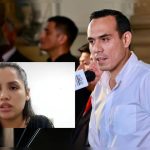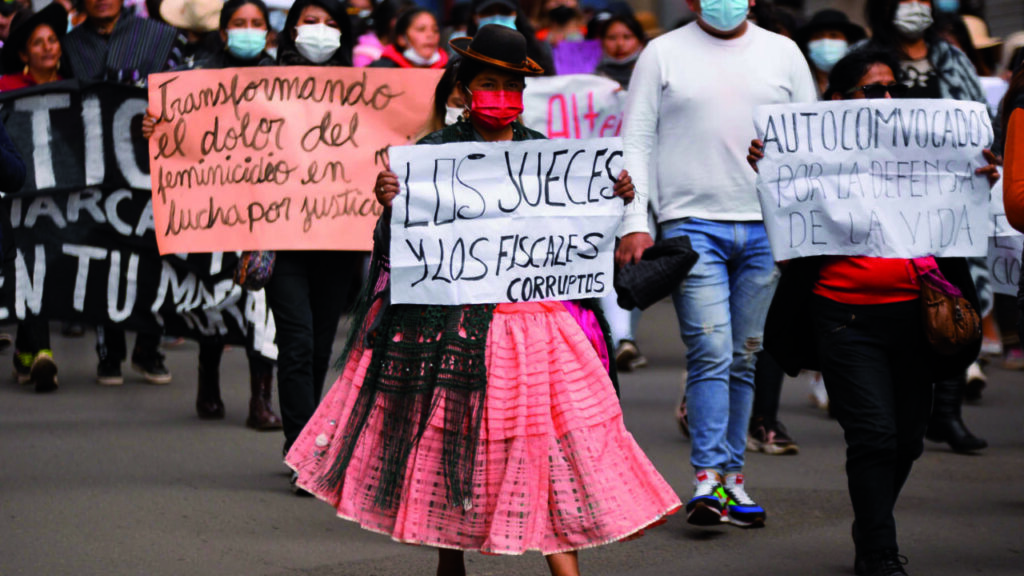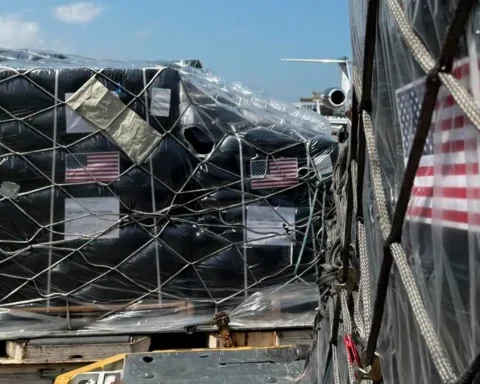The Federal Justice of La Plata activated this week the exchange of calls between the defendants in the case in which the alleged preparation of files against union leaders by former officials of the Buenos Aires government during the management of María Eugenia Vidal is being investigated.
The measure had been requested by the federal prosecutor Ana Russo and ordered by the federal judge Ernesto Kreplak during the first half of January, but it advanced last Thursday after the telephone numbers used by the accused during the investigated period were completed.
The judge demanded, ex officio, four telephone companies that “within 48 hours, send the details of incoming and outgoing calls, as well as incoming and outgoing text messages, during the period between the 1st May 2017 and December 31, 2017”, of the telephone lines investigated.
The measure reaches former governor Vidal and all those who met on June 15, 2017 in the multipurpose room of the Banco Provincia building in Buenos Aires, an opportunity in which businessmen, public officials and directors of the federal intelligence agency discussed strategies to achieve the imprisonment of union leaders such as Juan Pablo “Pata” Medina of the construction union.
The first defendant in the file was the former Buenos Aires Minister of Labor Marcelo Villegas, who at that meeting – whose audiovisual record was found in the AFI and handed over to justice due to the current intervention of that body – expressed his desire to have a “Gestapo “-the political police of the Nazi regime- to act against the unions.
At this time, the Federal Justice of La Plata analyzes the information collected in the file and continues taking testimonies that aim to reconstruct how that meeting took place, who recorded it and how, why it was held at the Buenos Aires headquarters of Banco Provincia and -among the main questions- seeks to elucidate what the directors of the AFI were doing there.
Villegas’s work agenda, which is already in the hands of justice, provided the investigation with new elements that strengthen the idea that the Vidal government officials coordinated actions, outside of those permitted by the Intelligence Law, with the AFI that in those days the defendants Gustavo Arribas and Silvia Majdalani were driving.

“MEETING WITH MAJDALANI/GRASSI. (IN CAPITAL).” Reads, in capital letters, an entry on the date June 12, 2017 in Villegas’ diary.
Majdalani was then deputy director of the AFI and Grassi would be the former deputy secretary of Buenos Aires Justice Adrián Grassi, who three days later also participated in the meeting at Bapro.
The former official of the Buenos Aires judicial portfolio is summoned for Tuesday to the Parliamentary Bicameral Commission for the control of intelligence agencies, although he is not obliged to attend because he is not an agent of an information service.
Among the testimonies collected during the week by federal judge Kreplak was that of the journalist from the newspaper La Nación Hugo Alconada Mon, who ratified the information given in his book “La Raíz”, in which, already in 2018, he gave an account of the meeting that took place at the Buenos Aires headquarters of Bapro.
The journalist assured that this information had been provided to him by a Buenos Aires official who, already at that time, recognized the coordinated work between the Buenos Aires administration and the AFI.
During the week that passed, in addition, the former security manager of the Buenos Aires headquarters of Banco Provincia testified as a witness, who confirmed that there were no security cameras in the hall of that building, which strengthened the hypothesis that the investigated meeting was recorded. with cameras placed specifically for that occasion.
This is Mariano Albito, who had already testified before the Bicameral Legislative Commission for the control of intelligence agencies and now did so as a witness before Judge Kreplak, according to what Télam was able to reconstruct from judicial sources.
Under oath to tell the truth, as all witnesses are required to do, the former security manager of the Bapro headquarters in Buenos Aires repeated what he had already said in Congress: that in the room where the meeting was held, now under investigation there were no security cameras nor are there today.

















